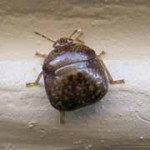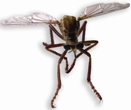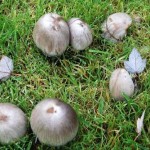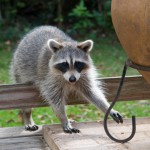READY TO GET STARTED?
REQUEST A FREE ESTIMATE
Fill out the form below or call (888) 466-7849 for a free, no-obligation estimate.
Thanksgiving is a special time of year! It’s more than just a day where we sit around and stuff ourselves with food and watch football. It’s a time to slow down and take some time to be thankful for all of the things that we have in our lives. Whatever difficult times we may be having, we always have blessings to count.
This Thanksgiving, like all of them, we are thankful for so many things at Northwest. We are so thankful for our customers who trust us each and every day to be their pest control or termite provider. We’re thankful that you trust us to help keep your home and business and those that you care about healthy and pest free.
We have THE BEST team of any pest control management company out there. Our Northwest team comes to work every day with a “Customers for Life” attitude. Taking care of our customers is what is most important to us and we have a team that really lives this in their day to day lives. Thank you!
This Thanksgiving, take a few minutes to think about all the things that you’re thankful for. Even better, leave a comment and tell us what you’re thankful for this year!
Happy Thanksgiving from the team at Northwest Exterminating!
Most homeowners feel accustomed to seeing roaches, mice and squirrels around their home but other creatures may seem otherworldly. Many pests do not originate in the United States. Still, what may seem like just an annoyance to you can have huge implications for our ecosystem. As reported by Pest Control Technology magazine, these invasive species cost the U.S. about $120 billion a year.
Though you may know to call our technicians when you see an unfamiliar pest, you may not know how the pest got here.
 One culprit is the live plant trade. The importation of non-native plants has brought about 70% of the most damaging insects and diseases with it. One imported plant that plagues the Southeast is kudzu and with it, kudzu bugs. These tiny brown bugs feed of the kudzu and multiply just as far and fast as the plant does. Though kudzu may not be going anywhere, our technicians can take care of these little plant feeders.
One culprit is the live plant trade. The importation of non-native plants has brought about 70% of the most damaging insects and diseases with it. One imported plant that plagues the Southeast is kudzu and with it, kudzu bugs. These tiny brown bugs feed of the kudzu and multiply just as far and fast as the plant does. Though kudzu may not be going anywhere, our technicians can take care of these little plant feeders.
When you hear of pests traveling to the United States, you may not realize they travel the same way we do! Pests travel into ports on international boats, get into luggage on flights around the world and hitch a ride on the interstate, cutting a trip that used to take them thousands of years down to less than twelve hours.
 Other troublesome invasive pests are mosquitoes that carry the West Nile Virus. As the name suggests, these bugs have come all the way from Africa! These particular mosquitoes breed with native mosquitoes and continue to spread the disease because conditions and climates, especially in the South are favorable to them.
Other troublesome invasive pests are mosquitoes that carry the West Nile Virus. As the name suggests, these bugs have come all the way from Africa! These particular mosquitoes breed with native mosquitoes and continue to spread the disease because conditions and climates, especially in the South are favorable to them.
Your Northwest Exterminating service representative can take care of these pest as well as many others, leaving you free from worry about potential risk factors. Keep in mind that the very nature of many of these pests, both native and non-native, leaves them somewhat resilient to permanent elimination. That said, your service representative will likely have to return the next season. Luckily, we at Northwest emphasize “Customers for Life” and hope to establish a relationship that will make return visits a rewarding experience.
Melissa Brown
[email protected]
 Calls have been coming into our office with homeowner’s wanting to know why they have mushrooms in their lawn. Mushrooms come from a mixture of moisture (we’ve had a good amount of rain lately), cloudy weather, and organic material such as old mulch, animal waste, or rotting tree stumps.
Calls have been coming into our office with homeowner’s wanting to know why they have mushrooms in their lawn. Mushrooms come from a mixture of moisture (we’ve had a good amount of rain lately), cloudy weather, and organic material such as old mulch, animal waste, or rotting tree stumps.
Mushrooms are the reproductive part of fungi that lives in the soil. Not only are mushrooms an eyesore to your healthy lawn but you don’t want children or pets to have access to them.
You can get rid of the mushrooms by manually removing them from your yard but that still does not take care of the problem. Chances are the mushrooms will return. Mushrooms will often go away when the sun comes out and the soil dries up.
There are preventative measures that you can take to prevent mushrooms from showing up in your lawn:
If you have mushrooms in your yard it is best to call a professional lawn care company to diagnose the problem. Mushrooms can sometimes be a sign of a more serious problem with your lawn.
Northwest Lawn Care professionals will do a Free Lawn Care Analysis and develop a customized plan to help get your lawn back on track to the healthy lawn that we all desire.
 According to a recent article by the Wall Street Journal, wildlife damage to crops, landscaping and infrastructure now exceeds $28 billion a year. The article addresses the benefits to the increase in wildlife but also the damage they can cause and the effect it has on our local economies.
According to a recent article by the Wall Street Journal, wildlife damage to crops, landscaping and infrastructure now exceeds $28 billion a year. The article addresses the benefits to the increase in wildlife but also the damage they can cause and the effect it has on our local economies.
This year, Princeton, N.J., has hired sharpshooters to cull 250 deer from the town’s herd of 550 over the winter. The cost: $58,700. Columbia, S.C., is spending $1 million to rid its drainage systems of beavers and their dams. The 2009 “miracle on the Hudson,” when US Airways flight 1549 had to make an emergency landing after its engines ingested Canada geese, saved 155 passengers and crew, but the $60 million A320 Airbus was a complete loss. In the U.S., the total cost of wildlife damage to crops, landscaping and infrastructure now exceeds $28 billion a year ($1.5 billion from deer-vehicle crashes alone), according to Michael Conover of Utah State University, who monitors conflicts between people and wildlife.
Click here to read the whole article.
For wildlife removal or exclusion needs in your home or business, call Northwest. A Wildlife Control representative will inspect your property for evidence of wildlife and will determine the points of entry being used by these critters to get into your structure. A customized plan will be developed to get the immediate nuisance under control and to seal off any known points of entry.
Source: http://online.wsj.com/article/SB10001424052970204846304578090753716856728.html#
We are currently on Round 8 of our Lawn Care service. The main focus of Round 8 is lime application. Lime is essential in regulating the pH levels in your soil. “pH” is a measure of your soil’s acidity or alkalinity. If your soil’s pH level is outside of the desired range, there is a good chance that your soil is not getting the vitals nutrients and minerals that it needs to grow into a healthy lawn.
For Best Results:
If you are giving your lawn TLC and still not seeing it be as healthy and productive as you would like then maybe your pH balance is off. A professional lawn care company should be able to test the pH levels in your soil and help you to determine a customized plan that is right for your lawn. After all…don’t we all want greener grass?
For Atlanta lawn care and other surrounding areas, call Northwest Lawn Care services at 770.293.2700 or visit us online at https://www.callnorthwest.com/lawn-care/